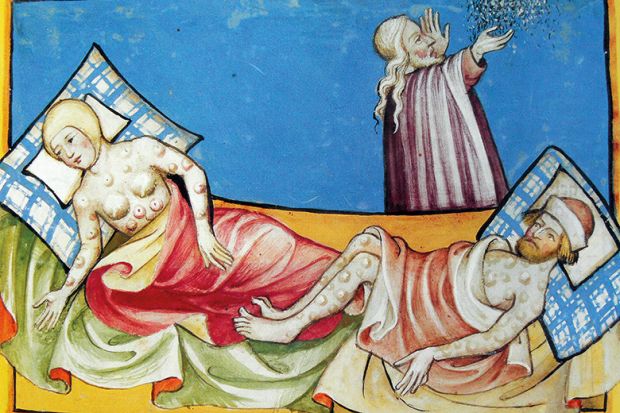The Black Death in the 14th century wiped out a staggering 25 million people – one-third of Europe’s population – in just six years. The sharp decrease in the population resulted in a labour shortage that eventually led to the dissolution of feudalism. The authority of the church that encouraged people to pray to God collapsed and gave birth to humanism. A minuscule bacterium invisible to the eye had utterly altered the course of the world.
Fast-forward to 2020 and the proliferation of Covid-19 seems to imitate the plague. Borders are no longer permeable and the exchange of humans and material goods has come to a standstill. This is because Covid-19 has no vaccine or treatment and moves quicker than initially imagined.
There are myriad reasons why Covid-19 turned into a pandemic. One of them is failing to respond early. We fiddled while Rome burned, so to speak. When Covid-19 was first discovered, many nations deemed it an epidemic bound to a certain region. However, the 21st-century world was more densely knitted than we imagined, and the advancement in transportation and the freedom of overseas travel dispersed this virus to every corner of the earth – this virus that needs a host to survive. In other words, epidemics are no longer a local problem, but rather an urgent matter that the human race must solve together – like the El Niño climate cycle that occurs off the coasts of Peru and Chile but reaches the shores of Asia.
Albert Camus’ 1947 novel The Plague, depicting a group of people in a locked, plague-ridden city, parallels what is happening today. In this novel, people from all walks of life unite to stand against the outbreak. The novel concludes that under any circumstances, humans attain happiness through solidarity based on intelligence.
Amid this crisis, the “Covid-19 Technology Access Framework” released by a coalition of 30 universities – spearheaded by Harvard University, the Massachusetts Institute of Technology and Stanford University – resembles the équipes sanitaires (health squads) that Dr Bernard Rieux and Jean Tarrou form in the novel. The framework declares that all technology and intellectual property of the 30 universities on the prevention, diagnosis and treatment of Covid-19 will be provided free of charge to the world. The only obligation for the research institutes or corporations that use this shared knowledge is to accelerate commercialisation and to allow access to more people at low cost. The universities also promise to curtail the administrative process necessary for the technology transfer.
A typical university-corporation technology transfer is exclusive and focused on profit creation since it shapes the growth of both the university and the economy. According to a report by the Association of University Technology Managers, US university patents accounted for $591 billion (£473 billion) in GDP and created 4.27 million jobs between 1995 and 2015. Amid a global recession, these technology transfers deserve to be vitalised not only for the stable operation of universities but also for economic development.
The partner universities in the Covid-19 Technology Access Framework have chosen the continuous advancement of humankind, not profit, as the supreme value. However, these moves should not just stop at Covid-19 but expand to all ailments that threaten the planet, including climate change, resource depletion, infectious diseases, as well as famine in the poorest countries. I believe that the participating universities as well as major research-oriented universities in the US, Asia and Europe need to also actively partake in this endeavour. We must consider a new paradigm of knowledge transfer that contributes to the enduring progress of humankind.
To this end, the Covid-19 Technology Access Framework has given universities around the world something to mull over. It has shown that knowledge sharing among prominent universities at no cost is a feasible way to bring about rapid commercialisation. New infectious diseases can arise at any time and this is an era where grand challenges, including environmental changes caused by micro dust and natural disasters caused by environmental pollution, are global. These challenges are exceedingly complex for a single institution or a country to solve alone. Therefore, I would like to take this opportunity to suggest to my fellow universities the creation of an international coalition to prepare a new technology transfer system for the public good, just as American institutions did to quickly meet global demand in the wake of coronavirus.
However, this demands a critical prerequisite: maintaining interest and investment in basic science. The origin of technology that can solve the many challenges that will head our way is ultimately basic science – just like the foundation of a Covid-19 vaccine or diagnostic technology is pure life sciences, for example. It is worth considering ways for the public and private sectors to support those universities that have decided to share their intellectual property for the public good.
In Camus’ novel the plague retreats and the people change. But there is not a complete eradication of the virus as it can reappear at any moment. What matters most is the human will to stand up against any disaster and the unity of people, the author tells us.
Assessing the impact of the Covid-19 Technology Access Framework on the pandemic won’t be possible until years after we recover from it. So rather than waiting for the outcome of these efforts, why don’t universities, corporations and nations proactively discuss the transfer of new technologies that can combat the future crises that humankind is likely to face.
Moo Hwan Kim is president of the Pohang University of Science and Technology (POSTECH).
The Times Higher Education World University Rankings 2021 will be published at 12pm BST on 2 September. The results will be exclusively revealed at the THE World Academic Summit, which will explore the challenges created or accelerated by the pandemic and identify new opportunities for progressive reform.
POSTSCRIPT:
Print headline: Let’s prize the well-being of the world in all our efforts
Register to continue
Why register?
- Registration is free and only takes a moment
- Once registered, you can read 3 articles a month
- Sign up for our newsletter
Subscribe
Or subscribe for unlimited access to:
- Unlimited access to news, views, insights & reviews
- Digital editions
- Digital access to THE’s university and college rankings analysis
Already registered or a current subscriber? Login








